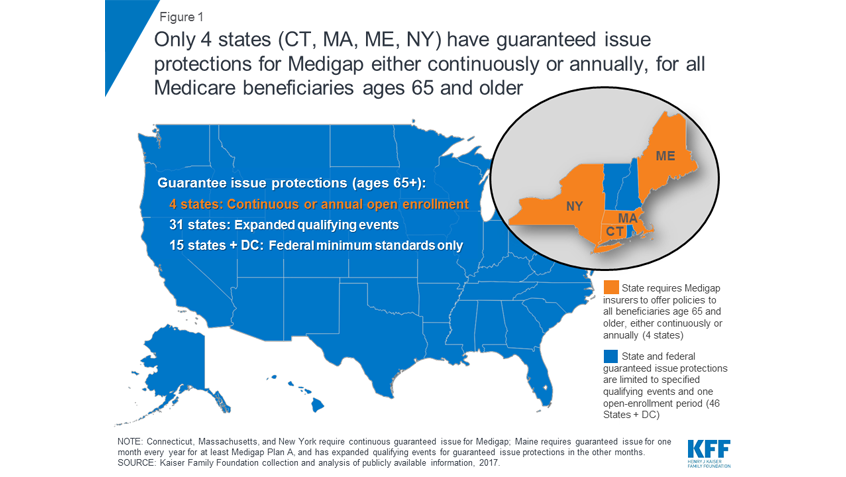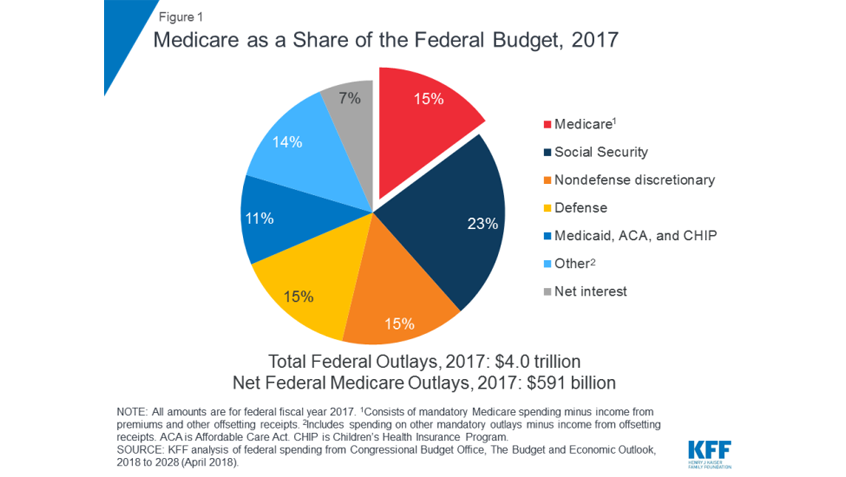This week, the Kaiser Family Foundation released a new issue brief on Medicare spending. The brief analyzes the most recent historical and projected Medicare spending data published in the 2018 annual report of the Boards of Medicare Trustees and the 2018 Medicare baseline and projections from the Congressional Budget Office (CBO).
In 2017, Medicare spending accounted for 15% of the federal budget, and for 20% of total national health spending in 2016. It also accounted for 29% of spending on retail sales of prescription drugs, 25% of spending on hospital care, and 23% of spending on physician services.









